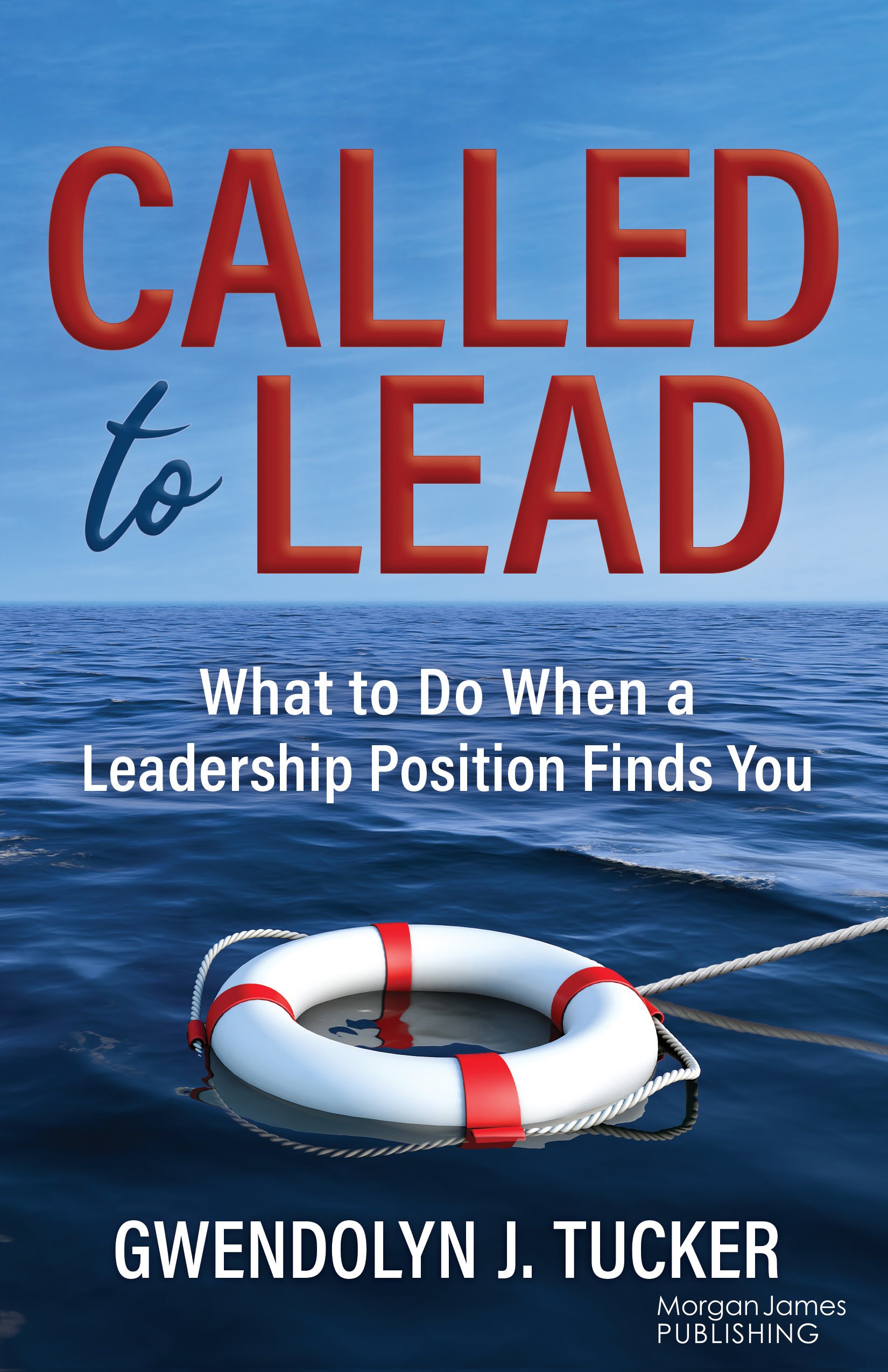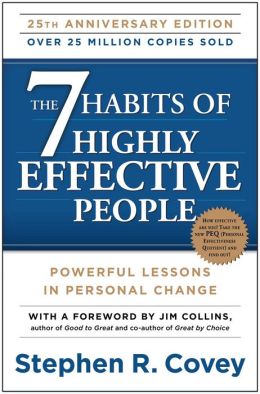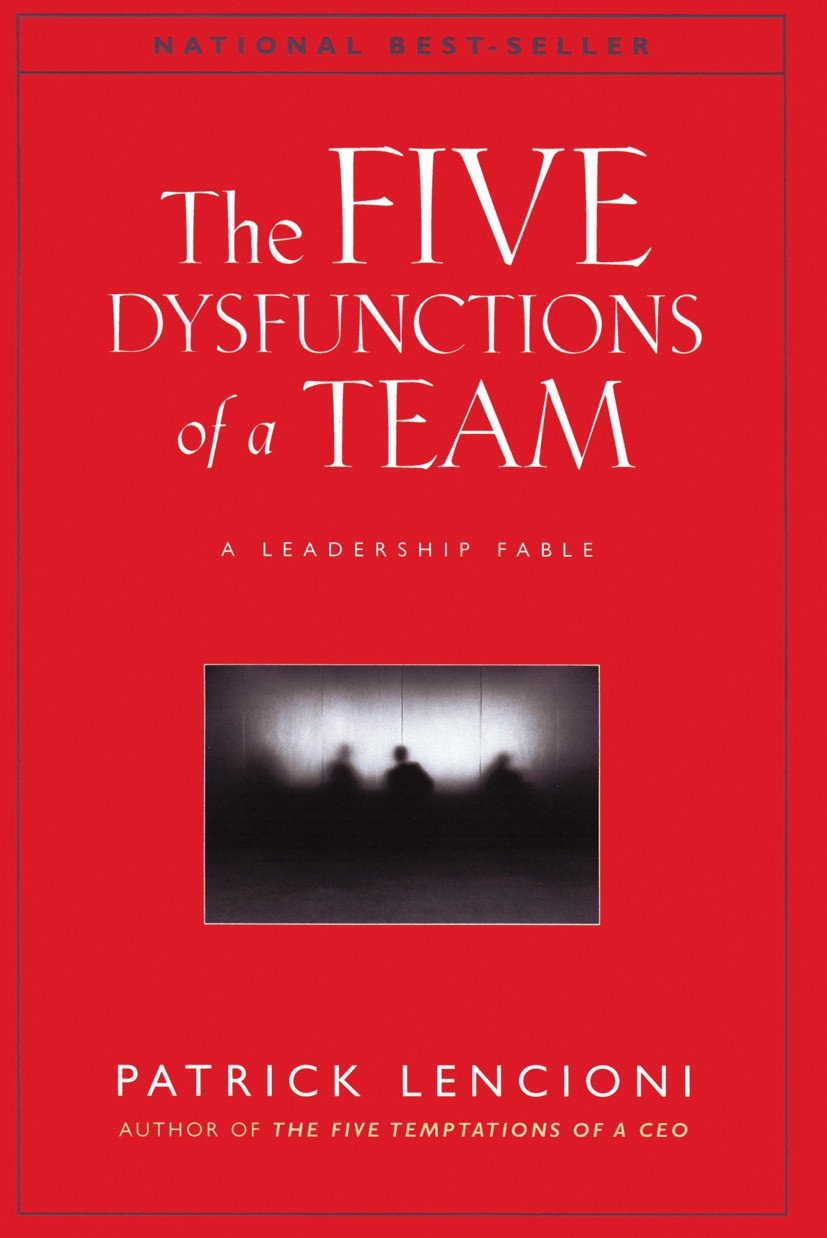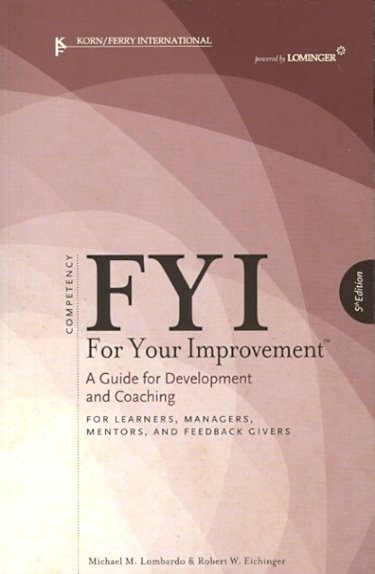Levels of Listening
Have you ever been talking but realized that no one was listening? I know. Me too. That is why, when I stumbled upon this information on the levels of listening, I just had to share it with anyone who is willing to listen.
As Covey emphasizes in 7 Habits of Highly Effective People, most of our efforts to develop communication skills deals with reading, writing and speaking. But very little effort is placed on developing our ability to really HEAR the other person's perspective.
Cultivating the ability to listen is so very important to effective communication. This information can help you recognize and remove roadblocks that impairs your ability to listen well.
Levels of Listening
Stephen R. Covey's Listening Continuum identifies five (5) levels of listening.
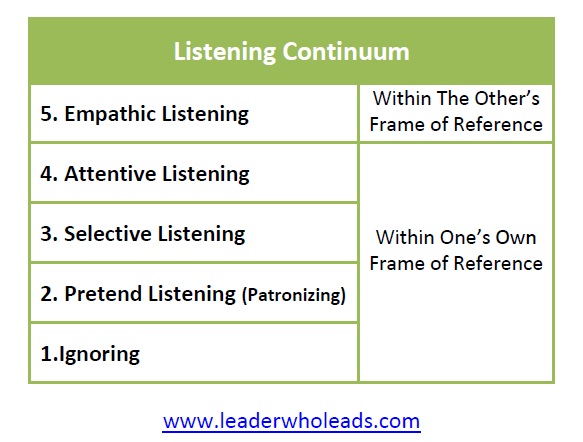
At the first four (4) levels, the listener hears within their own frame of reference in mind, not from the person who is speaking.
But it is at Level 5 that true communication occurs. This is where the listener attempts to see things from the other person's perspective or point of view, not with your own filter/lens.
Level 1: Ignoring
Unfortunately, many people pride themselves on their ability to multi-task. Muti-tasking has its place, but not when it comes to listening.
If you have ever been ignored, you know it. There is no doubt about it. You are talking but the other person is not giving any attention to what you are saying.
(Note: It is possible the person did not hear you. If that is the case, it is not ignoring.)
Level 2: Pretend Listening
To truly hear someone takes time and attention.
Pretend listeners give you the impression they hear what you say, and they may hear some of your words, but they are not getting your true meaning. In essence, they are not fully "present."
They may nod their head or offer another gesture to indicate they are listening, but they are not giving you their undivided attention.
Level 3: Selective Listening
The next level is selective listening. The image that comes to mind is being in a cafeteria where you can pick and choose from the buffet line.
When a person engages in selective listening, they only get part of the message not all.
Telltale signs? They are quick to interrupt the person speaking or they have the tendency to finish the other person's sentences.
They may respond by saying, "So, what's your point?"
Level 4: Attentive Listening
Attentive listeners offer their time and attention. But they are one step short of being empathic listeners because attentive listeners hear from their frame of reference.
They don't try to put themselves in the other person's shoes.
Level 5: Empathic Listening
Empathic listening is intentional. The person who develops this skill listens not only to the other person's words (what is SAID), but they also listen for what the other person MEANS. They are willing to give their time AND full attention to truly hear the other person.
The person who listens in this manner, gives you a gift: the gift of truly listening to what is said in order to understand your meaning.
|
"To truly listen means to transcend your autobiography, to get out of your own frame of reference, out of your own value system, out of your own history and judging tendencies, and to get deeply into the frame of reference or viewpoint of another person. This is called empathic listening. It is a very, very rare skill. But it is more than a skill. Much more." - Stephen R. Covey, The 8th Habit |
Listening & Leadership
I came across this insightful study that investigates the relationship between effective listening and leadership.
The author of the study, Battalion Chief Gregory L Rynders, reached this conclusion: "The results indicate that there is a positive relationship between effective leadership and effective listening skills. Effective leaders apparently hear what others have to say and empathize with their points of view."
Become A Skilled Listener
According to Michael Lombardo and Robert Eichinger, skilled listeners model the following behaviors:
- Practices active listening
- Will hear people out
- Can accurately restate others' opinions, even when they disagree
Listening is a skill that we can hone/sharpen continuously. Learn to be a whole-body listener. It just takes practice.
In the past, I had a really tough time hearing people out, especially when I disagreed. But over the years I have worked hard to develop my ability to listen. I am thankful for those who helped me to develop in this area.
It requires work; but it is well worth the effort.
(For more information, please see For Your Improvement.)
Want to Know More?
As you can see, there are five (5) levels of listening. It is important to use the level appropriate for the occasion/situation.
Improve Your Relationship with Your Boss
Are you looking to improve your relationship with your boss? If so, the Boss Relationship Worksheet will help you better understand and communicate more effectively with your immediate supervisor.
To download your copy, submit your information on the form below.
After completing the Boss Relationship Worksheet, you will find that the following will prove helpful in showing you how to cultivate a better working relationship with your boss:
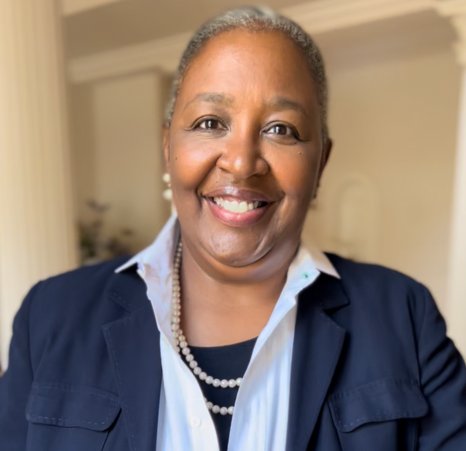 |
I published my first book and I am beyond excited.
Get your FREE copy of Called to Lead!
ORDER PRINT HERE
Leaders don't
create
followers.
Leaders
create
other
leaders.
- Tom Peters








